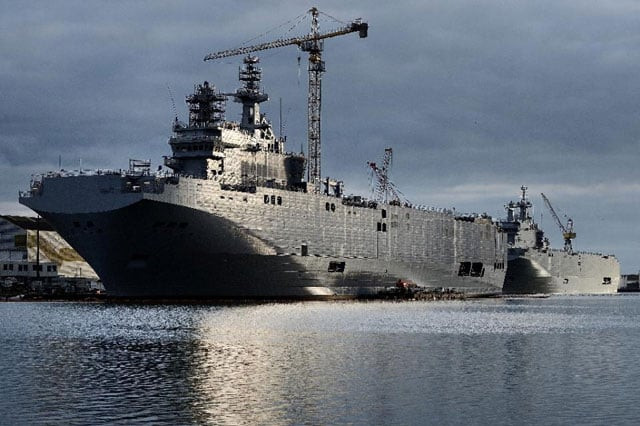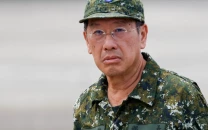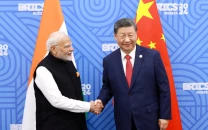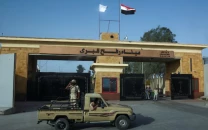France says Egypt to buy warships after Russia deal scrapped
French presidency says both countries have agreed on terms and conditions of Egypt's acquisition of two vessels

A picture shows the Sevastopol (L) and the Vladivostok warships, two Mistral class LHD amphibious vessels ordered by Russia from STX France in Saint-Nazaire, western France, on December 20, 2014. PHOTO: AFP
President Francois Hollande and Egyptian President Abdel Fattah al-Sisi "have agreed on the principle and terms and conditions of Egypt's acquisition of the two Mistral-class vessels," the statement said.
The two warships, which can each carry 16 helicopters, four landing craft and 13 tanks, were ordered by Russia in 2011 in a 1.2-billion-euro ($1.3-billion) deal.
However, France found itself in a sticky situation as the date of delivery neared in 2014, and ties between Russia and the West plunged to Cold War lows over Moscow's annexation of Crimea and support for separatists in eastern Ukraine.
Paris faced the wrath of its allies around the world if it were to deliver the technology to Russia, and decided to cancel the delivery.
It was an expensive decision for France, which has had to foot the bill of over one billion euros for the upkeep of the ships and the cost of training 400 Russian sailors to crew them.
After eight months of intense negotiations, France and Russia agreed on the reimbursement of the deal in August. Paris returned 949.7 million euros which had already been paid.
France also committed not to sell the two warships to a country that could "contravene Russia's interests", such as Poland or the Baltic states, a diplomatic source told AFP.
Several countries were said to be interested in the warships, including Canada, India and Singapore. It has not been divulged how much Egypt will pay for the warships.
While experts have said any sale would likely see a significant price cut, government spokesperson Stephane Le Foll said there would be no "loss" of money in the new accord.
The deal between Egypt and France is their second big military contract this year after Egypt became the first buyers of the Rafale fighter jet, agreeing to purchase 24 in February.
The 5.2-billion-euro ($5.9 billion) sale of the planes was a rare triumph for France which had failed to export its flagship multi-role combat jet. However, rights group Amnesty International slammed the decision to sell the jets to a nation it has accused of "alarming" human rights abuses.
Analysts said that deal required overlooking some serious abuses by a regime which Paris sees as a stable partner in a chaotic region.
With Libya to the west wracked by instability, and the threat from Islamic State-linked extremists on its eastern flank, Egypt has become a strategic partner to France despite a rights record sullied by al-Sisi's brutal crackdown on opponents.
Sisi was elected president in May 2014 with 96.91 per cent of the vote a year after toppling the country's first freely elected leader, Islamist Mohamed Morsi. A subsequent crackdown on Morsi's supporters left at least 1,400 dead and thousands more in jail.



















COMMENTS
Comments are moderated and generally will be posted if they are on-topic and not abusive.
For more information, please see our Comments FAQ